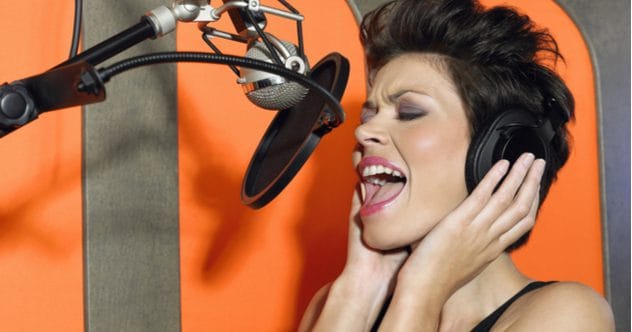Ever hummed a new tune and thought, ‘Wait, I’ve heard this before’? You’re not alone! Sometimes those familiar notes lead to friendly nods, but other times, they spark intense legal battles. The music world is filled with stories of artists accused of stealing melodies, riffs, or lyrics. Get ready to dive into 12 of the most intriguing music plagiarism cases and see how these high-stakes disputes played out.
1. Led Zeppelin vs. Spirit
One of rock’s most iconic songs, “Stairway to Heaven,” faced a serious challenge in 2014. The estate of Randy Wolfe, from the band Spirit, sued Led Zeppelin’s Robert Plant and Jimmy Page. They claimed “Stairway” copied parts of Spirit’s 1968 instrumental track, “Taurus.”
Music experts argued in court that the similar musical elements were common chord progressions used for centuries. Spirit lost the case. They didn’t give up, appealing in 2018 and then taking it to the U.S. Supreme Court in October 2020. The battle finally ended when the Supreme Court decided not to hear the case. Interestingly, Robert Plant famously disliked “Stairway to Heaven” and reportedly sat quietly through the trial, just following instructions.
2. Vanilla Ice vs. Queen and David Bowie
Sampling music is common today, but it was a legal wild west in the early days. Vanilla Ice’s 1990 hit “Ice Ice Baby” featured a very familiar bassline. That bassline belonged to “Under Pressure” by Queen and David Bowie. When Queen and Bowie threatened to sue, Vanilla Ice initially tried to argue his riff was different. He used musical terms and claimed an extra note changed everything.
Few were convinced. The case was eventually settled out of court. As a result, David Bowie and the members of Queen received songwriting credits and royalties for “Ice Ice Baby.” Vanilla Ice later claimed he bought the publishing rights to “Under Pressure,” but a Queen spokesperson denied this.
3. Robbie Williams vs. Loudon Wainwright III
Sometimes, it’s not just the music but the words that get artists into trouble. British pop star Robbie Williams released his album I’ve Been Expecting You in 1998. One track, “Jesus in a Camper Van,” included the lyric: “I suppose even the Son of God gets it hard sometimes, especially when he goes round saying I am the way.”
This was strikingly similar to a line from Loudon Wainwright III’s 1973 song “I Am The Way”: “Every son of God has a little hard luck sometime, especially when he goes around saying he’s the way.” Williams claimed he heard someone singing the line while he was in rehab. A judge wasn’t swayed and ruled that Williams had to pay 25% of the song’s royalties to Wainwright’s publisher. The judge also blocked future use of the lyric.
4. Lady Gaga vs. Madonna
When Lady Gaga released her empowerment anthem “Born This Way” in 2011, fans and critics immediately noticed similarities to Madonna’s 1989 hit “Express Yourself.” Given Gaga’s open admiration for Madonna, many considered it an homage rather than outright plagiarism. No lawsuit followed, but Madonna’s reaction was memorably frosty.
In an interview, Madonna commented that “Born This Way” sounded “very familiar.” When asked how she felt about it, she called it “reductive.” Pressed to explain what “reductive” meant, Madonna coolly replied, “Look it up,” before sipping her tea. Sometimes, a little shade can be more cutting than a court ruling!
5. Avril Lavigne vs. The Rubinoos
Avril Lavigne’s catchy 2007 hit “Girlfriend” landed her in hot water with the 1970s power-pop band The Rubinoos. They accused Lavigne of copying their song “I Wanna Be Your Boyfriend.” The dispute got quite public, with arguments playing out on MySpace (remember that?).
Lavigne strongly denied the claims, stating she’d never even heard of The Rubinoos. She also pointed out that other famous songs shared similar-sounding phrases. Eventually, the case was settled out of court. Lavigne’s manager emphasized that the settlement was to avoid a costly legal fight, not an admission of guilt.
6. Coldplay vs. Joe Satriani
Coldplay’s global hit “Viva La Vida” faced a plagiarism claim from guitar virtuoso Joe Satriani. He alleged that Coldplay’s song copied substantial portions of his instrumental track, “If I Could Fly,” released in 2004. Satriani expressed his shock, saying he felt “like a dagger went right through my heart.”
Satriani stated he tried to resolve the issue privately, but claimed Coldplay wasn’t interested in talking. The lawsuit was eventually dismissed by a California court. While the official records state each party would pay their own legal fees, there was widespread speculation that a confidential financial settlement had been reached out of court.
7. Men at Work vs. Larrikin Music (Kookaburra Song)
The iconic flute riff in Men at Work’s 1981 hit “Down Under” became the subject of a surprising lawsuit decades later. It all started when an Australian TV quiz show asked which children’s song was contained in “Down Under.” The answer? “Kookaburra Sits in the Old Gum Tree,” a campfire song written in 1934.
The publishing company Larrikin Music, which owned the rights to “Kookaburra,” sued Men at Work for copyright infringement. In 2010, a court ruled that the “Down Under” riff did indeed copy a substantial part of “Kookaburra.” Men at Work and their record label were ordered to pay 5% of the song’s royalties earned since 2002, plus future earnings.
8. Robin Thicke & Pharrell Williams vs. Marvin Gaye’s Estate
The 2013 mega-hit “Blurred Lines” by Robin Thicke and Pharrell Williams sparked one of the most controversial music plagiarism cases. Marvin Gaye’s family sued, claiming “Blurred Lines” copied the “feel and sound” of Gaye’s 1977 song “Got To Give It Up,” rather than specific notes or lyrics.
Thicke and Williams initially sought a court judgment saying they hadn’t infringed, arguing that a “vibe” can’t be copyrighted. They lost. A jury found them liable for copyright infringement, ordering them to pay millions to Gaye’s estate. This verdict was highly debated, with many musicians arguing it set a dangerous precedent that could punish songwriters for being inspired by older works. Robin Thicke later tried to distance himself, claiming he was high on Vicodin during the song’s creation and barely involved.
9. The New Zealand National Party vs. Eminem
This case is a bit different, involving a political party rather than another artist. During New Zealand’s 2014 general election, the center-right National Party used a song in a campaign ad that sounded strikingly similar to Eminem’s hit “Lose Yourself.”
It turned out the track was purchased from a stock music library and was titled “Eminem-esque.” Eminem’s publishers sued the National Party for copyright infringement. The New Zealand High Court ruled in Eminem’s favor, finding that the track was indeed too similar to “Lose Yourself.” The National Party was ordered to pay NZ$600,000 in damages. Eminem stated any money received would be donated to hurricane relief efforts.
10. Tom Petty vs. Sam Smith
When Sam Smith released their soulful ballad “Stay With Me” in 2014, listeners quickly noticed a resemblance to Tom Petty’s 1989 classic “I Won’t Back Down.” Petty’s publisher contacted Smith’s team about the similarities. Unlike many heated disputes, this one was resolved amicably.
Tom Petty stated, “All my years of songwriting have shown me these things can happen… Sam’s people were very understanding of our predicament, and we easily came to an agreement.” Petty and his co-writer Jeff Lynne were given songwriting credits and a share of the royalties for “Stay With Me.” Petty was known for being quite relaxed about such similarities, having previously shrugged off comparisons between his songs and those by The Red Hot Chili Peppers and The Strokes.
11. Le Tigre vs. Barry Mann
Here’s a peculiar case that surfaced decades after the songs were released. In 1961, Barry Mann co-wrote the hit “Who Put the Bomp (in the Bomp, Bomp, Bomp).” Fast forward to 1999, and feminist electropunk band Le Tigre released their song “Deceptacon.” Then, another 22 years later, Mann sued Le Tigre, claiming “Deceptacon” infringed on his copyright.
The issue revolved around Le Tigre’s use of the word “bomp” and other “non-lexical vocables” (nonsense vocal sounds). Le Tigre countersued, pointing out that using such sounds and even the word “bomp” was common in doo-wop music, which Mann himself had drawn from. The case ended with a confidential settlement, and no admission of wrongdoing from Le Tigre, who essentially won their point.
12. Olivia Rodrigo vs. Elvis Costello
This final example shows that not all similarity claims end in legal battles or bad blood. When Olivia Rodrigo released her debut album Sour in 2021, some listeners noted that her song “Brutal” had a guitar riff similar to Elvis Costello’s 1978 classic “Pump It Up.”
When a Twitter user pointed this out, Costello himself responded with surprising grace. He dismissed any notion of plagiarism, writing, “This is fine by me… It’s how rock & roll works. You take the broken pieces of another thrill and make a brand new toy.” He even listed songs he himself had borrowed from. Costello’s cool and supportive reaction was a refreshing take in a world often quick to accuse.
These cases show just how tricky the world of music copyright can be. From clear-cut lyric lifts to debates over a song’s ‘feel,’ the line between inspiration and plagiarism is often blurry. Whether ending in massive payouts, quiet settlements, or even a knowing nod from a rock legend, each story adds a fascinating note to music history.
What do you think about these cases? Are there any other music plagiarism stories that surprised you? Leave your comment below!










